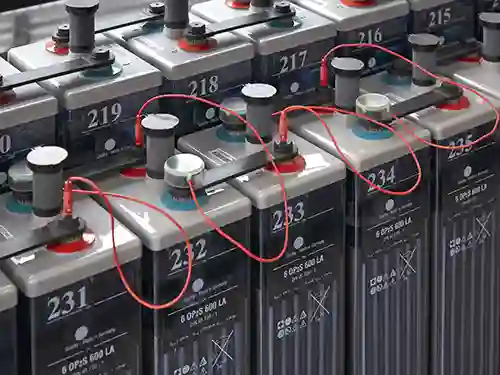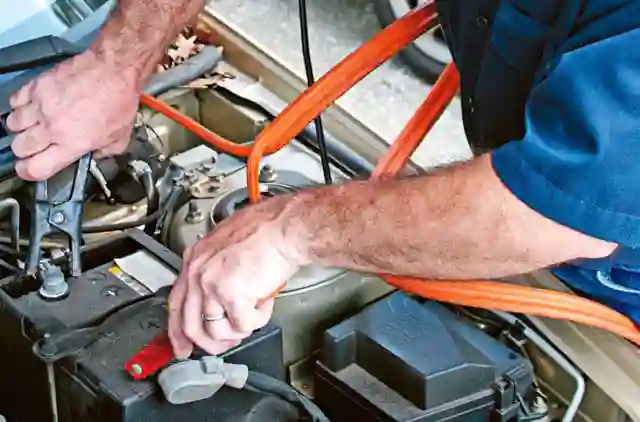Hybrid cars have turned the automobile world by delivering the best of both worlds via fuel thrift as well as ways to be eco-friendly, and Toyota has been one of the pioneers in this sector. Odds are, if you’re after the wheel of a Toyota hybrid, you relish talking fewer emissions and taking more occasional trips to the pump. This raises the important question: how does warm weather affect a hybrid Toyota car battery in performance?
The powerplants on hybrid vehicles, and their batteries especially, are where the magic happens, nailing these vehicles in hot weather is essential to keep them running for years. So, how does the summer heat impact your hybrid battery? In short, yes.
Hybrid batteries can become less efficient, wear out faster, or in some cases be damaged in the long run as temperatures rise. Today, we uncover the three ways in which heat harms hybrid batteries and provide useful advice so that you can prevent your car from becoming a victim of burns in hot climates.
Key Takeaways:
- Hybrid Toyota car batteries can face challenges in hot weather, such as reduced efficiency and a shorter lifespan.
- Heat can damage the battery and put stress on hybrid systems, so taking preventive measures is crucial.
- Toyota has equipped its hybrids with temperature management systems to help control heat, but drivers need to be cautious in extreme weather.
- Simple maintenance and environmental awareness can help optimize your hybrid’s battery performance in hot climates.
How Do Hybrid Car Batteries Work?
There is quite a sort of hybrid cars, especially models like the uber-famous Toyota Prius, that are prepared to use a particular fuel engine-electric motor cross for better gas mileage and more hygienic emissions. These are higher-tech cars based around either nickel-metal hydride (NiMH) or lithium-ion (Li-ion) batteries that store and provide power.
This stored energy is good for more than just acceleration, too, and allows the car to move purely on electric power at times—much increasing the fuel economy of a turbocharged gasoline engine configuration and making for a greener drive. Nonetheless, the hybrid batteries are very sensitive to temperatures. It runs most effectively within a comfortable temp range, usually between 20°C to 30°C (68°F to 86°F).
The battery also becomes unstable in terms of internal chemical processes, especially when you are either below or above this perfect range with hot weather. This can prevent chemical reactions from functioning properly, and the battery will degrade quicker, also causing it to have a shorter overall lifespan because of reduced performance and more wear. In a place where temperatures can skyrocket, this makes temperature control an essential part of keeping your hybrid battery healthy.
Why Is Battery Temperature Management Important?
For hybrid cars, proper battery temperature is key to maximum performance and lifespan. Unlike their non-hybrid cousins, hybrid batteries are highly sensitive to the effects of temperature extremes, and if not properly insulated may lose their efficiency and lifespan rapidly. To mitigate the dangers while still recovering energy as quickly as possible, Toyota has implemented high-speed cooling systems to control battery temperature.

But Toyota’s cooling systems are top-notch, that does not mean there is still no fight against extreme heat. Even for the most sophisticated of systems, extended periods of very high temperatures can put too much stress on the system; this causes batteries to operate inefficiently and wear faster.
According to AutoPacific, that still may not be enough, so it sounds like if you live in some brutally hot environments, further steps might be needed to preserve your battery and maintain the performance of your car as well.
The Impact Of Hot Weather On Hybrid Toyota Car Batteries
One major factor that can negatively impact how hybrid batteries perform and last is if they are exposed to high temperatures.
- Reduced Performance: In hot weather, the car will be less able to take advantage of hybrid technology and efficiency—the gasoline engine will be used more frequently.
- Increased Internal Resistance: Heat increases internal resistance, making it harder for the battery to deliver power. This can result in sluggish acceleration and poor performance efficiency.
- Decreased Charging Capacity: The battery will not charge completely in extreme heat, resulting in lower electric drive power.
- Reduced Lifespan: Research shows that when temperatures exceed 90°F (32°C), hybrid battery life could be reduced by 10-15%.
How Toyota Manages Heat-Related Issues?
Following are the steps taken concerning limiting the impact of heat on hybrid car batteries by Toyota:
- Battery Cooling Systems: Most Toyota hybrids have chilling systems that serve to hold the battery’s temperature.
- Smart Ventilation: These measures include smart ventilation systems that prevent the battery from overheating.
- Software Optimization: Toyota relies on software within its hybrid control methods to monitor the battery temperature and control cooling as required, even in extreme heat, to provide optimal implementation.
Practical Tips For Protecting Your Hybrid Battery In Hot Weather
Just because Toyota hybrids come with their cooling systems as standard, you could do more to conserve your battery in hot weather:
- Park in the Shade: Wherever possible, park your car in a shaded spot or a garage. This helps stop the battery from overheating due to direct sunlight.
- Use a Sunshade: A windshield sunshade can lower the internal temperature of your car and help keep the battery cooler.
- Monitor Battery Temperature: If your hybrid has a show that shows the battery temperature, make sure you’re watching it—particularly in hot weather or during extended drives.
- Avoid Heavy Loads: Carrying more weight in your car can overwork the battery. Release excess weight, particularly on hot days, to prevent highlighting the system.
- Drive During Cooler Hours: Try driving during early lights or late evenings to lower the temperature effect on your battery.
Cabin Cooling’s Impact On Battery Health
Cooling the cabin is a very essential part of maintaining the hybrid battery fit, as many hybrid batteries are inside the vehicle, usually under the rear hubs. Driving a hot car can not only cause interior pain but also heat up your battery—and when batteries get too hot, they mourn from heat pressure that hurts their implementation and greatly shortens their lifespan.

Another step you can handle is tinting the windows, which helps keep the internal temperature down. Since window tinting blocks damaging UV rays and cuts down on the quantity of direct daylight entering the cabin, it can keep your interior much cooler. In turn, this reduces the load on the battery cooling design and helps support optimal battery needs, even in the heat of summer.
Routine Maintenance For Hybrid Batteries
Regular care can help extend the life of your hybrid battery. Here are some key tips:
- Clean the Cooling Fan: Make sure the cooling fan and air inlets around the battery are clear of debris. Blocked airways can prevent the cooling system from working correctly.
- Routine Checkups: Schedule regular checkups to catch any possible battery issues early and confirm everything is working efficiently.
Signs Of Battery Overheating And What To Do
Knowing the signs of an overheating battery can help you stop damage. Common signs include:
- Reduced Power: Your car may not rev as quickly, or the gasoline engine may be encountered more often.
- Warning Lights: If the battery gets too hot, a caution light may occur on the dashboard.
- Strange Noises: If you hear uncommon noises from the battery vent, such as a loud cooling fan, the method may be working to cool down the battery.
If you notice these signs, take direct action:
- Shut down the vehicle and let it cool off.
- Park in a shady area and run the air movement if needed.
- If the problem continues, visit a Toyota assistance center for a checkup.
Toyota Battery Warranty And Replacement
Toyota provides guarantees on hybrid batteries that cover up to 8 years or 100,000 miles, depending on the model. In hotter conditions, you may need to replace the battery shortly due to heat-related degradation.
In states like California, where emission norms are stricter, warranties can extend up to 10 years or 150,000 miles. However, battery substitutes can be costly, ranging from $2,000 to $5,000, so it’s essential to consider the effect of climate on long-term cos
Conclusion
Do hybrid Toyota car batteries mourn in hot weather? Indeed. When batteries are used in high temperatures, their efficiency drops, wear additions and battery life longing can be greatly diminished. Luckily, Toyota has designed state-of-the-art cooling methods for its hybrid vehicles to offset the negative effects of heat, ensuring your vehicle can still work properly even in intense heat. However, in very hot climates, these methods alone may not be sufficient.
Being proactive by following practical advice like parking in the shade, using sunshades, and planning regular care will help avoid over-straining your hybrid’s battery. With good care, you can bypass costly battery reserves and ensure that your Toyota hybrid resumes operate efficiently and safely—even during the most desirable times of the year.

